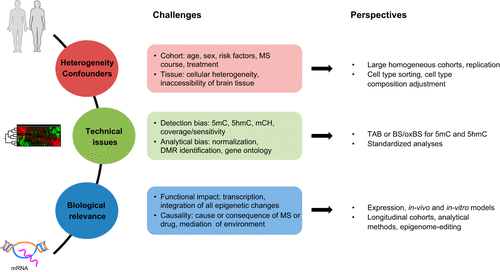Epigenetics
The Influence on Gene Expression
What is Epigenetic?
Epigenetic is the modification to the physical structure of DNA. These modification will cause the gene to turn on and off which will also affect how the gene is read. It can also affect how a cell is developed over time and will cause a change in the gene expression in many different ways. H2 V1
Types of Epigenetic Modifications
DNA
Methylation
DNA Methylation
(Click on the picture to learn more)
Histone
Histone
(Click on the picture to learn more)
What is it used for and why?
Researchers and scientist study epigenetics for multiple reasons. Understanding the process and results of epigenetics can help scientist and researchers to develop treatments for people who have epigenetic diseases. Furthermore, it is very important to understand epigenetic because epigenetic affect your genes and your genes make up who you are. It is the characteristics that make up who you are. H3, I4

Challenges of Epigenetic Study

"Challenges of epigenetic studies in MS. Methodological limitations arise from heterogeneity at the individual and tissue level, as well as analytical restraints, and hinder the understanding of functional relevance of the detected epigenetic changes, thus making biological interpretation still challenging. These challenges necessitate the use of large and homogenous cohorts as well as experimental or bioinformatics strategies. MS, multiple sclerosis; 5mC, DNA methylation; 5hmC, DNA hydroxymethylation; mCH, non-CpG DNA methylation; DMR, differentially methylated region; oxBS, oxidative bisulfite; TAB, Tet-assisted bisulfite." H4,I5
Interview-Dr. Szyf
Dr. Moshe Szyf was interviewed on May 20, 2015 on epigenetic and psychobiology. He is the co founder of the Sackler Institute for epigenetic and psychobiology at McGill University. V2
